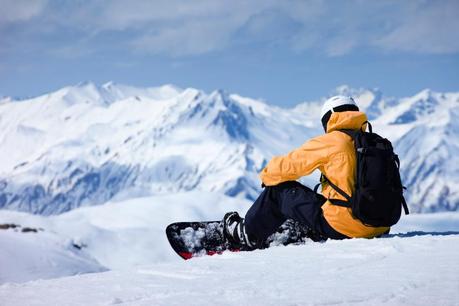
If you love snowboarding and have decided that you want your own board, there are a few things you need to take into consideration. By following these simple steps you can find the perfect board for you!
Size
The length of your snowboard has little role in choosing the right one for you. Don’t just assume that because you are short, you will need a small board or vice versa. Weight is the most important factor when picking the right board for you.
Most snowboard shops will offer recommended sizes for your weight average sizes can range from 140-145cm (for weights of 45 to 54.5kg) and 180-190cm for 113kg or more. The strength of the board can also affect how suitable it is for your weight. Also take into account the type of terrain you will be riding on – this can also affect the length of board you should use.
Width
Wear your snowboarding boots and get ready to stand on some boards. If you have big feet, you may need a larger board so that your toes or heels don’t hang off the edge too far (an inch each side is just enough!).
Flexibility
The flexibility or ‘flex’ of your board is how easily it can bend whilst you’re snowboarding. The amount of flex is usually down to personal preference and the type of terrain you will be boarding on. A high flex is usually set at 1, whereas a stiff board will be rated 10. If you are a beginner, a board with a higher flex will move with you and won’t trip you up so much if you make a mistake.
Camber
The camber is the curve that the bottom of your board has.
Regular – The curve faces upwards. Great for jumps.
Reverse – The curve faces downwards. Good for freestyling and powder surfaces.
Hybrid – The curve has regular camber in the middle, and reverse towards the nose and tail of the board. These are adaptable and depending on the camber can be used on a variety of surfaces.
Flat/Zero – A flattened board with no curve.
Shape
The direction in which you ride your board can greatly affect the type of shape you need your board to be. There are three main types of board: Directional, Directional Twin, and True Twin.
Directional boards are made with a longer nose and a slimmer tail and is ideal for those going downhill most of the time.
Directional Twin boards are great for all types of riding, from those who board on various mountain ranges or at parks. This is usually longer in the nose and great for freestyle boarding.
True Twin boards have a symmetrical shape i.e. they aren’t extended at either the nose or tail, and are ideal for going both ways and can be used on a variety of terrain.
Of course, design is up to you. You can go for something plain or a cool design but remember boards can be expensive, so choose the right one for you and look after it!
Like this post? if so check out…. How to Choose a Ski Jacket
